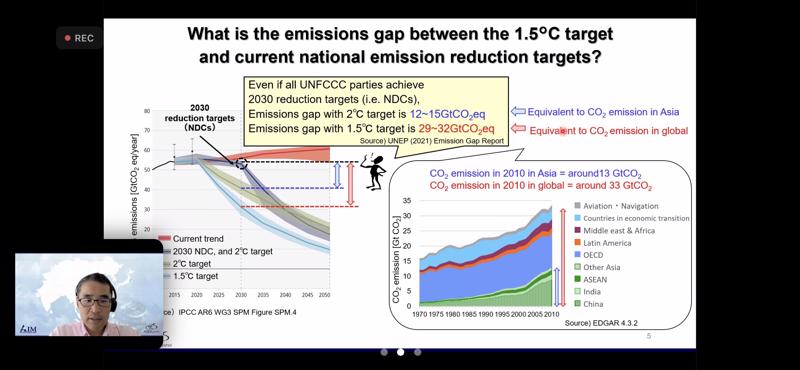Japan’s Ministry of Foreign Affairs organized an Online Press Briefing on Demand-Side Decarbonization on July 24, presenting a vision for a better way of life that will be richer, more comfortable, and healthier in about ten years from now. This proposed way of life aims to simultaneously achieve greenhouse gas reduction targets by 2030.
While 90 per cent of people are familiar with the term “decarbonization”, there remains a lack of concrete action due to factors such as not knowing exactly how to proceed. To achieve decarbonization, significant reductions, compared to the 2013 index, are necessary in various aspects of life by 2030: 66 per cent in household emissions, 35 per cent in transportation emissions, 14 per cent in non-energy-related emissions, and 51 per cent in business-related emissions. To address this challenge, the New National Movement (NNM) has been established to change people’s behavior and lifestyles, paving the way for the realization of new and more prosperous lifestyles that contribute to decarbonization.
The key characteristics of the NNM include a consistent message from the government about “achieving new and prosperous lifestyles toward decarbonization”, concrete action that goes beyond mere calls to action, coordinated and timely initiatives and campaigns involving cooperation between local governments, businesses, organizations, and consumers, as well as creating a high demand for products and services that support the new lifestyles.
In order to implement the NNM, national and local governments, businesses, organizations, and consumers will support citizens in adopting new consumer lifestyles by providing various analog and digital opportunities and venues (support sites) for people to learn, be exposed to, and experience the overall image of new and prosperous lifestyles in line with decarbonization goals.
Some of the steps involved in this effort include making full use of digital technology, promoting various comfortable ways of working and living (such as teleworking, relocating to rural areas, workcations, etc.), offering products and services that support lifestyles leading to decarbonization, encouraging behavioral changes through incentives and effective dissemination of information (awareness, nudges, etc.), and suggesting and supporting region-specific lifestyles considering the local climate and culture.









 Google translate
Google translate